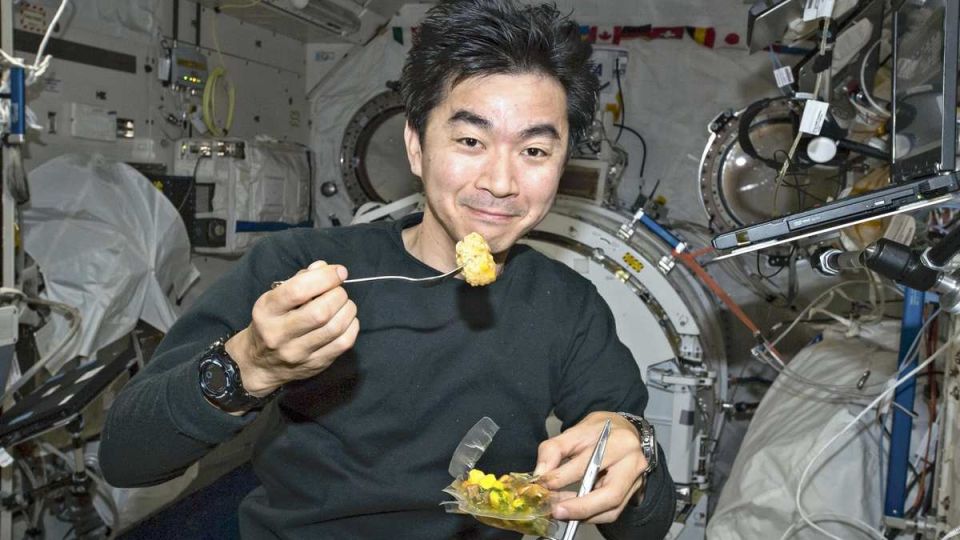August 26, 2025
TOKYO – A new certification aims to promote the development of high-performance space food needed for long-term stays in space.
Amid big dreams of space travel, an academic society has created an accreditation system for space food specialists. An educational program required for certification has been prepared, and applications for its online course are now being accepted.
So-called space food and health advisors will be certified by nutritional experts of the Japan Society of Nutrition and Food Science (JSNFS).
Muscle mass and bone density naturally decrease in microgravity environments. Astronauts on the International Space Station (ISS) exercise for several hours daily as a preventative measure. For civilians, however, development of “high-performance space food” is expected to prevent muscle atrophy and osteoporosis simply through diet.
A research group led by Tokushima University, which offers a space nutrition course covering bodily changes and necessary nutrients in space, has developed space food using protein in soybeans to suppress muscle atrophy, but the lack of researchers in the field has been a challenge.
JSNFS deemed it important to nurture specialists in this field, leading to the creation of an online educational program by research facilities, including Tokushima University and Kyoto Prefectural University of Medicine. Researchers at food makers and graduate students are target students for the program, and JSNFS will evaluate their performance in the course before certifying them.
The online course is planned to accept up to 20 students, and applications opened in late July. The one-year course starting October covers the latest research findings. The goal is to cultivate space food developers and nutritionists who can make a diet to support life in space.
“The development of new space food can contribute to the health of active astronauts,” Mukogawa Women’s University Prof. and JSNFS President Hitoshi Ashida said.
Tokushima University Prof. Takeshi Nikawa, who has contributed to the establishment of the accreditation system, said, “We want to start training experts who can help overcome challenges related to health in preparation for an era when space travel becomes more accessible.”
Japanese space food popular
Much of the food consumed on the ISS has been developed in Japan.
Since 2007, the Japan Aerospace Exploration Agency (JAXA) has certified food proposed by private companies for Japanese astronauts on long-stay ISS missions as “Japanese Space Food.” It has satisfied the appetites of astronauts throughout the years.
According to JAXA, there are currently about 50 items available, including canned mackerel developed by students at Fukui Prefectural Wakasa High School, Nissin Foods Co.’s “Chicken Ramen” and eel with teriyaki sauce. These items are also popular among overseas crew members.
The Japanese Space Food Certification requires the food meet certain conditions including: no liquid leakage, a shelf life of at least 1½ years from manufacturing and resistance to pressure and temperature changes.

